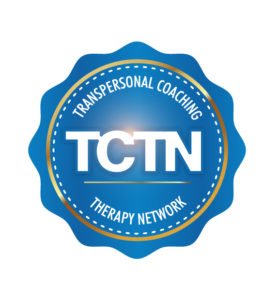Coaching The Whole Person
 In this presentation, Transpersonal Coach – Jevon Dangeli describes an approach to coaching the whole person and its applications in various contexts.
In this presentation, Transpersonal Coach – Jevon Dangeli describes an approach to coaching the whole person and its applications in various contexts.
Transpersonal coaching empowers people to transcend the ego states, mindsets and behaviours that inhibit their personal, professional and spiritual growth.
.
This 20 minute video presentation covers:
- What does it mean to “coach the whole person”?
- What is the value of a transpersonal approach to coaching?
- Can spiritual solutions be useful to people with ‘real life’ problems?
- What is the role of a transpersonal coach?
One of the primary roles of the transpersonal coach is to hold a liminal space (present, receptive and emergent), walking the client through a transformative passage that involves open questioning, deep listening and guided processes that help the client to integrate new, widened and resourceful perspectives into their lives. Transpersonal coaching by its very nature can lead to transformation and spiritual awakening.
 Our transpersonal coaching methodology combines Transpersonal Psychology with Mindfulness based interventions and the holistic applications of Neuro-Linguistic Programming (NLP) in order to achieve sustainable outcomes. These three complimentary fields have been synergised into one seamless Transpersonal Coaching Model.
Our transpersonal coaching methodology combines Transpersonal Psychology with Mindfulness based interventions and the holistic applications of Neuro-Linguistic Programming (NLP) in order to achieve sustainable outcomes. These three complimentary fields have been synergised into one seamless Transpersonal Coaching Model.
What is the value of a transpersonal approach to coaching?
- Individual consciousness is usually in a defensively contracted state. Transformation and growth is promoted by letting go of this defensive contraction (Walsh and Vaughan,1980).
- Transpersonal interventions typically enable people to generate expanded states of consciousness, reaching realms beyond the ego (Hartelius, Rothe and Roy, 2013).
- In expanded states of consciousness, one’s self-concept shifts beyond the usual boundaries to the extent that “no absolute limits can be placed on what is included or excluded in one’s self-concept” (Friedman, 2013, p.207).
- Transpersonal interventions utilize non-ordinary states of consciousness to facilitate health and well-being with primary emphasis given to the activation and integration of spirituality into an individual’s sense of identity (Elmer, MacDonald and Friedman, 2003).
- Transpersonal psychology goes beyond ego psychology. It is integrative, holistic and transformational (Hartelius, 2007).
The following articles further describe the value of transpersonal coaching and how it works:
- Introducing Transpersonal Coaching
- The Transpersonal Coaching Model
- Transformation in Transpersonal Coaching
- The Healing Potential of Transpersonal Coaching
- Transpersonal Psychology – New Perspectives
- Mindfulness, Bodyfulness and Open Awareness
- Open Awareness (a transpersonal coaching skill)
- The mindful remedy for stress and burnout
- Bouncing back from burnout
> Live Transpersonal Coach training
> Online Transpersonal Coach training
References:
Dangeli, J. (2015). Open awareness. Retrieved from: http://authentic-self-empowerment.com/open-awareness
Elmer, L.D., MacDonald, D.A, & Friedman, H. L. (2003). Transpersonal psychology, physical health, and mental health: Theory, research, and practice, The Humanistic Psychologist , 31:2-3, 159-181
Hartelius, G. (2007). Transpersonal Psychology: Defining the Past, Divining the Future. The Humanistic Psychologist 35(2):1-26 April 2007.
Hartelius, G., Rothe, G., & Roy P. J. (2013). A brand from the burning. The Wiley-Blackwell Handbook of Transpersonal Psychology, (3-22).
Friedman, H. L. (2013). Transpersonal self-expansiveness as a scientific construct. The Wiley-Blackwell Handbook of Transpersonal Psychology, 203-222.
Walsh, R. N., & Vaughan, F. (1980). Beyond the ego: Toward transpersonal models of the person and psychotherapy. Journal of Humanistic Psychology, 20(1), 5-31.